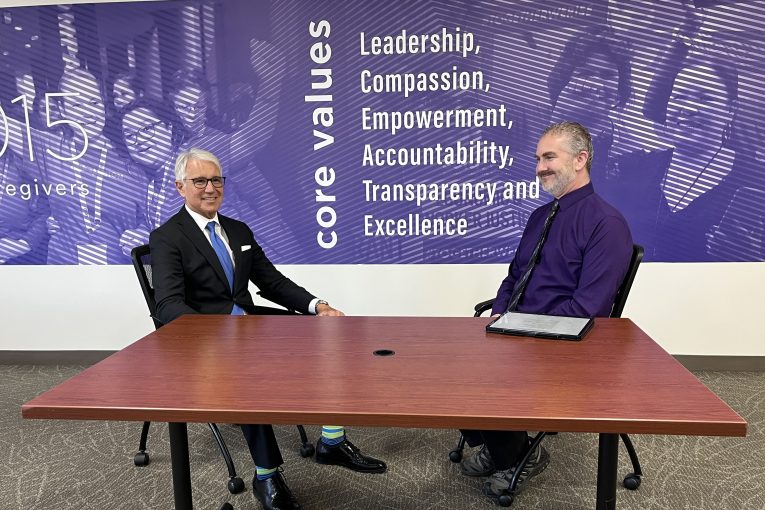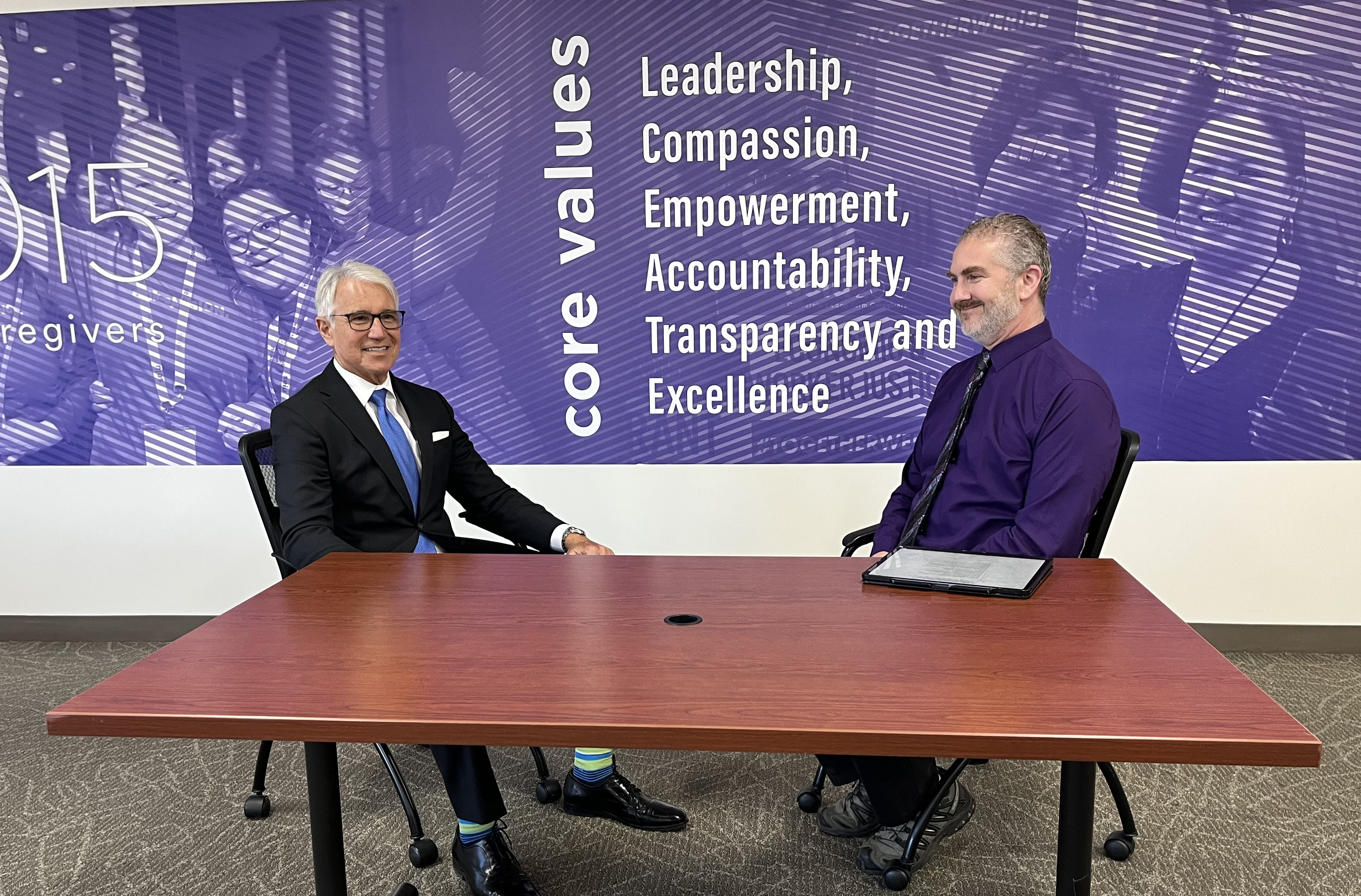

By D. Razor Babb
In late August 2022, The Peoples’ Vanguard of Davis CEO David Greenwald met with progressive Los Angeles District Attorney George Gascón at the Healthcare Workers Union Hall in L.A.
Greenwald traveled from Northern California’s Yolo County to film a documentary recall effort of Gascón, led by conservative opposition to his progressive agenda. When the recall attempt fell short of the necessary votes in order to get onto the November ballot, the Gascón meeting pivoted to a conversation about Gascón’s controversial reform agenda.
Since taking office in 2020 Gascón has been a leading advocate in a movement to re-evaluate mass incarceration and inmate warehousing, attempting to bring a more enlightened, insightful mindset to years of a strict law-and-order, “lock ‘em up and throw away the key” mentality,
Gascón posits that the criminal justice system is just too massive. And unfairly [disproportionately] impacts people of color and disadvantaged minorities. Incarceration statistics support his claims. With over 2 million people incarcerated in what is widely heralded as “the greatest nation and democracy on earth” the U.S. imprisons a quarter of the world’s incarceration population.
Civil rights and prison reform advocacy groups point out that disadvantaged minorities make up an inequitable portion of those incarcerated. And minorities are systematically the target of law enforcement.
Gascón seeks to shrink the footprint of California’s criminal justice system while maintaining law and order and improving public safety. He is well aware of the needs and concerns of the citizenry regarding crime but believes a humanistic approach goes to the heart of needs and concerns.
While his main opposition appears to come from law enforcement and the police union, he believes the public is ready for a broader, more far-reaching approach to criminal justice.
Opponents argue that his, and other progressive D.A.s are soft on crime and anti-law enforcement, insisting he is the cause of a rising crime rate. Gascón points out that crime statistics are complex and that while certain aspects of crime are on the rise, that dynamic was in progress prior to his tenure, and is an issue in red states just as much as blue.
It is not a clear fact that Gascón’s policies are driving the numbers. He points out that the system [criminal justice and law-enforcement] has been in need of repair for some time. Locking people up without any form of rehabilitation, locking them away for Draconian-era overextended periods that in many cases include life and life without the possibility of parole terms, takes away any incentive for positive lifestyle changes and eliminates what is needed most–the hope for a better future.
Education, rehabilitation programs, resources for mental health and addiction, community-based programs…these things pay dividends. Simply locking people up forever, giving up on them, is giving up on the communities they come from and is an anti-humanistic approach. It breeds more hopelessness, less pro-social, pro-active integration and interaction between the communities and the justice system. Ironically, the harsher the system, the more crime committed.
As a social watchdog and civic-journalism entity Davis Vanguard has been monitoring the courts and justice system for the past 15 years. Bringing attention to a need for law enforcement criminal justice system reform is of paramount importance in order to ensure democracy. Truth to power remains a primary ingredient and stalwart purpose of journalism, and for those like George Gascón.
The system, however, is fighting back. Conservative pushback and inciting public fear in San Francisco, Los Angeles, Florida, Pennsylvania, Virginia, and other states exemplifies how established powers…elected on platforms of “tough on crime,” have pushed back, attempting to neuter reform.
“We need expansive thinking and progressive individuals like Gascón,” David Greenwald says. When asked whether Gascón remains hopeful and optimistic, fresh from the failed recall effort, Greenwald pauses. “Relatively optimistic,” he says. Then adds, “realistically optimistic.”
David Babb is a writer, incarcerated at Mule Creek State Prison. Article was submitted to the Vanguard for publication.
